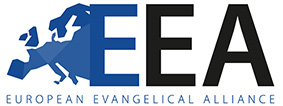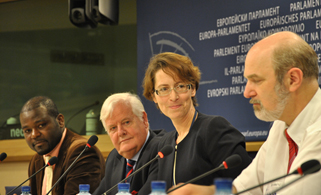The civil public square is all about people of different beliefs and worldviews being free to believe what they believe but also being concerned about the freedom of those who disagree with them. It requires the cultivation of civility so that, even if people passionately disagree with one another, problems can be resolved as much as possible in a constructive, rights honouring manner.
The following story from the Netherlands zooms in on a context where civility can be scarce – the attitudes between the LGBTQ+ community and the Evangelical Christian community.
Jan Wolsheimer, general secretary of the Dutch Evangelical Alliance (called Missie Nederland), knows that there is a long way to go before one could claim that each side of this divide respects the freedom of conscience of the other but recent experience has given him some hope.
Jan is a pastor with a missional perspective so he has always wanted to reach out to a broad range of people. That is why, over the years, he has made friends and discussed with those across the full spectrum of theology on matters of sexuality and gender. Jan is committed to continuing this dialogue and to building connection and respect. He also wants to help the Church to engage well, remaining faithful to Scripture while handling cultural and pastoral realities.
In 2021, Jan was contacted by 2 gay pastors who knew him personally. They invited him to participate in a big, televised debate during “Pride Week” on the topic of conversion therapy*.
The opportunity for Jan to join this debate was a huge thing. He knew that the other panellists and probably all of the audience would support a conversion therapy ban. Jan guessed he would be the only one opposing a ban. Would there be any point in turning up?
Jan talked with these pastors and everyone quickly agreed that the debate must be civil. They all promised to give each other space to express their experiences and beliefs and to respect the other. So Jan agreed to participate. And the Pride Week organisers were thrilled that an Evangelical representative was willing to come and engage with them.
Before the debate, a documentary was shown showing some appalling consequences of extreme conversion therapy. Jan was able to show sympathy to those who had been scarred by their experiences or who had lost family members due to suicide.
Jan says, “As a pastor, it helped me to understand the pain we as churches sometimes cause while trying to do good.”
But Jan was also able to clearly speak up for freedom of religion and freedom of expression. He pointed out how a conversion therapy ban could mean that even praying for someone could be illegal.
“As a pastor, I’ll have a problem when someone comes to me wanting help with their sexuality,” he said.
He added that freedom of religion or belief and of expression are important. But “It seems to me that most liberals don’t agree that others can have these rights. But surely freedom is for all.”
The panel understood his point. They acknowledged that there is a difference between gay people being pressurised into changing their sexuality and those who genuinely want help with their sexual identity. They could see that basic freedoms could be undermined by a conversion therapy ban that was defined too broadly.
Since this positive experience, it is not that the situation is transformed. The Netherlands is in the process of considering what kind of conversion therapy ban it might introduce.
But the debate did lead to new opportunities for Jan to meet with politicians and leaders of the LGBTQ+ community and to continue to advocate against a conversion therapy ban which could lead to unfair restrictions.
And the event showed that it is possible to discuss differences respectfully and for both sides genuinely to understand why the other side has a problem.
Jan and the gay pastors who invited him to the debate are convinced that these kinds of encounters are key to finding solutions and to building understanding, as well as civility, between those with opposing beliefs.
*Conversion therapy is the term used in many countries for treatment to help someone suppress their sexuality. Definitions are vague, ranging from horrific medical procedures to offers to pray and counsel. Some nations are opting to ban the practice.







